Esther Meir-Glitzenstein (born 1954, Israel) is a professor at the Ben-Gurion University of the Negev. [1] She specializes in the history of Jews from Arab countries, especially Iraq and Yemen, in the 20th century.
Esther Meir-Glitzenstein (born 1954, Israel) is a professor at the Ben-Gurion University of the Negev. [1] She specializes in the history of Jews from Arab countries, especially Iraq and Yemen, in the 20th century.
The Israeli Declaration of Independence, formally the Declaration of the Establishment of the State of Israel, was proclaimed on 14 May 1948 by David Ben-Gurion, the Executive Head of the World Zionist Organization, Chairman of the Jewish Agency for Palestine, and soon to be first Prime Minister of Israel. It declared the establishment of a Jewish state in Eretz-Israel, to be known as the State of Israel, which would come into effect on termination of the British Mandate at midnight that day. The event is celebrated annually in Israel with a national holiday Independence Day on 5 Iyar of every year according to the Hebrew calendar.

The Jewish exodus from the Muslim world was the departure, flight, expulsion, evacuation and migration of around 900,000 Jews from Arab countries and Iran, mainly from 1948 to the early 1970s, though with one final exodus from Iran in 1979–80 following the Iranian Revolution. An estimated 650,000 of the departees settled in Israel.
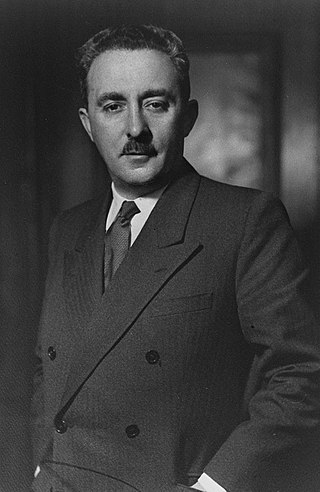
Moshe Sharett was a Russian-born Israeli politician who served as Israel's second prime minister from 1954 to 1955. A member of Mapai, Sharett's term was both preceded and succeeded by the premiership of David Ben-Gurion. Sharett also served as the country's first foreign minister between 1948 and 1956.
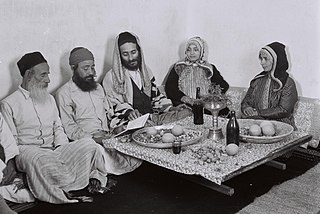
Yemenite Jews or Yemeni Jews or Teimanim are those Jews who live, or once lived, in Yemen, and their descendants maintaining their customs. Between June 1949 and September 1950, the overwhelming majority of Yemen's Jewish population immigrated to Israel in Operation Magic Carpet. After several waves of persecution throughout Yemen, the vast majority of Yemenite Jews now live in Israel, while smaller communities live in the United States and elsewhere. Only a handful remain in Yemen. The few remaining Jews experience intense, and at times violent, anti-Semitism on a daily basis.
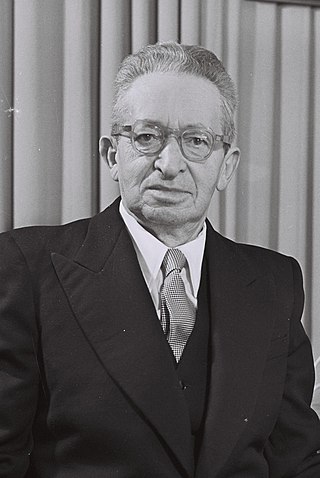
Yitzhak Ben-Zvi was a historian, Labor Zionist leader and the longest-serving President of Israel.

Eliyahu Nawi was a judge, lawyer, poet, politician, Bible investigator, and mayor of Beersheba.

From 1951 to 1952, Operation Ezra and Nehemiah airlifted between 120,000 and 130,000 Iraqi Jews to Israel via Iran and Cyprus. The massive emigration of Iraqi Jews was among the most climactic events of the Jewish exodus from the Muslim World.

Operation Magic Carpet is a widely known nickname for Operation On Wings of Eagles, an operation between June 1949 and September 1950 that brought 49,000 Yemenite Jews to the new state of Israel. During its course, the overwhelming majority of Yemenite Jews – some 47,000 from Yemen, 1,500 from Aden, as well as 500 from Djibouti and Eritrea and some 2,000 Jews from Saudi Arabia – were airlifted to Israel. British and American transport planes made some 380 flights from Aden. At some point, the operation was also called Operation Messiah's Coming.

The Mossad LeAliyah Bet was a branch of the paramilitary organization Haganah in British Mandatory Palestine, and later the State of Israel, that operated to facilitate Jewish immigration to British Palestine. During the Mandate period, it was facilitating illegal immigration in violation of governmental British restrictions. It operated from 1938 until four years after the founding of the State of Israel in 1952. It was funded directly by the American Jewish Joint Distribution Committee, and was not subject to the control of the Jewish Agency who operated their own Aliyah department headed by Yitzhak Rafael.
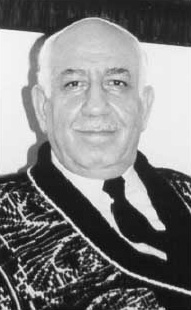
Naeim Giladi (18 March 1926 – 6 March 2010) was an anti-Zionist Iraqi Jew, and author of an autobiographical article and historical analysis titled "The Jews of Iraq". The article later formed the basis for his originally self-published book Ben-Gurion's Scandals: How the Haganah and the Mossad Eliminated Jews.

Yoav Gelber is a professor of history at the University of Haifa, and was formerly a visiting professor at The University of Texas at Austin.

HeHalutz or HeChalutz was a Jewish youth movement that trained young people for agricultural settlement in the Land of Israel. It became an umbrella organization of the pioneering Zionist youth movements.

The intercommunal conflict in Mandatory Palestine was the civil, political and armed struggle between Palestinian Arabs and Jewish Yishuv during the British rule in Mandatory Palestine, beginning from the violent spillover of the Franco-Syrian War in 1920 and until the onset of the 1948 Arab–Israeli War.

Tuvia Friling is an Emeritus professor at Ben-Gurion University of the Negev, Israel. Previously he served as a senior researcher at the Ben-Gurion Research Institute for the Study of Israel and Zionism and a lecturer at the Israel Studies Program both at Ben-Gurion University of the Negev.

Yossi Goldstein is an Israeli historian and biographer. Goldstein's research focuses on Modern Jewish History, the History of Zionism, and the History of the State of Israel. Goldstein is a professor at the Faculty of the Social Sciences and the Humanities at the Ariel University Center. He has published biographies of Eli Horovitz, Levi Eshkol, Yitzhak Rabin and Golda Meir.

The One Million Plan was a strategic plan for the immigration and absorption of one million Jews from Europe, the Middle East, and North Africa into Mandatory Palestine, within a timeframe of 18 months, in order to establish a state in that territory. After being voted on by the Jewish Agency for Israel Executive in 1944, it became the official policy of the Zionist leadership. Implementation of a significant part of the One Million Plan took place following the establishment of the State of Israel in 1948.
The 1950–1951 Baghdad bombings were a series of bombings of Jewish targets in Baghdad, Iraq, between April 1950 and June 1951.
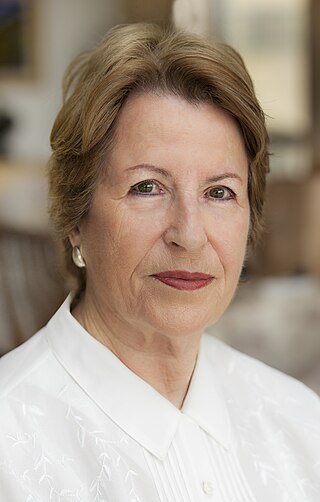
Dvora Hacohen is an Israeli historian and professor in the Martin (Szusz) Department of Land of Israel Studies and Archaeology at the Bar-Ilan University in Israel. Her research interests are the development of Israeli society.

Roni Stauber is an Israeli historian. He is an Associate Professor in the Department of Jewish History at Tel Aviv University. Stauber serves as the Director of the Goldstein-Goren Diaspora Research Center and the Director of the university's Diploma Program in Archival and Information Science. Stauber is also a member of the academic committee of Yad Vashem. His research focuses on various aspects of Holocaust memory and the formation of Holocaust consciousness in Israel and around the world. In particular, he examines the interrelations between ideology and politics, and between collective memory and historiography, with a focus on Israeli-German relations.